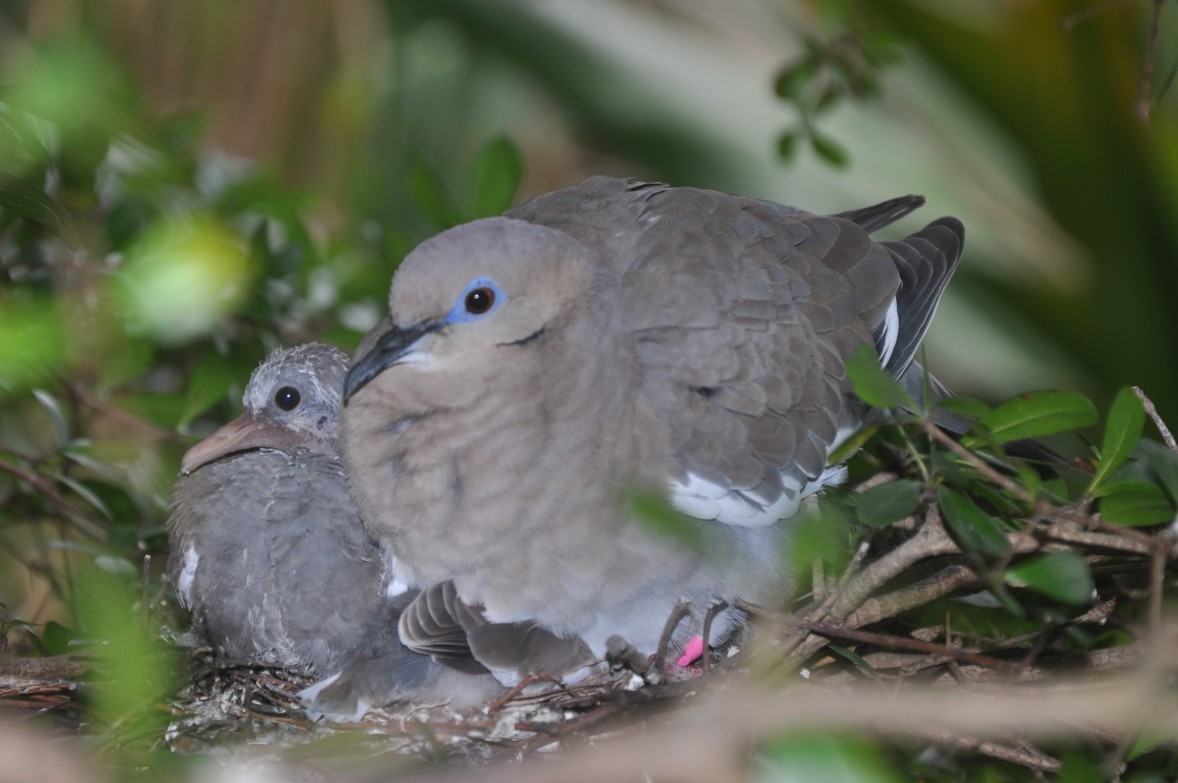Do not refresh or close this window.

Do not refresh or close this window.


Share
From April until late June is the breeding season for our local feathered friends. The public may notice that many birds are moving around in pairs, males are being especially more vocal and some flying with nesting material in their beaks. Some birds, such as White-winged Doves, Grackles (Ching-Chings), and Mockingbirds will have eggs or chicks right now and will be swooping at passersby in defense of their nests.
This also means that we are coming to the time of year when baby birds leave their nests, either willingly or otherwise. As the chicks grow and test their wings, they will often fall from their nests and appear helpless on the ground, calling for their parents.
Our human instinct is to pick up and care for helpless baby birds, but most likely you will have startled away the parents who will usually be watching nearby and aware of their offspring’s plight. Moving a chick completely from where you found it will endanger its chances of survival if the parents cannot find it. Trying to care for a wild chick will be subjecting yourself to a most demanding task as a growing chick will need to be fed approximately every half-hour from sunup to sundown.
Contrary to popular belief, most wild animals require special diets and do not thrive very well solely on birdseed, bread, or cat food! The chick’s parents are much better suited for that job.
The best advice for when you come across nest-fallen chicks is to leave them where they are. Unless the chick is in immediate danger such as in the road or being harassed by a cat or dog, just leave them where they are or carefully move them into nearby vegetation for cover. If you see a nest nearby, put the chick gently back into the nest. Do not worry about the parents rejecting the baby bird. Contrary to popular belief, parent birds will not abandon their chick because you touched it as most birds have a very poor sense of smell.
If the nest is damaged or too high to reach, you can make a makeshift nest from a small container perforated for drainage and lined with leaves and/ or small twigs. Fasten it in shade of the original tree or bush as high as practical off the ground.
If you do feel responsible for a fallen nestling, observe the situation, and get a description or photo of the chick and parents if possible. Secure your dog or cat to keep them from hunting baby birds. Contact the Cayman Islands Department of Environment for advice before you intervene.
Share this information with friends, family, and especially children so we can all learn the right way to care for our native wildlife.
NB: To maintain biosecurity and protect the health of the animals under our care, Cayman Turtle Centre will advise but will not accept or consider taking in any animals brought in from the outside other than in consultation with the Department of Environment. Each such circumstance will be evaluated on a case-by-case basis. Typically, however, it is much more effective to assist wildlife in-situ as much as possible, rather than translocating it from the wild.